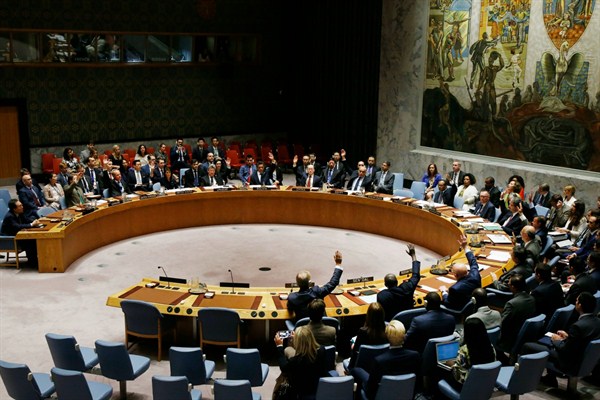Some political battles seem so obviously over and done with that you can forget that the losing side’s grievances are still important.
I discovered this because of a comment I made in a recent interview for a German website: that “discussions of Security Council reform are dead” at the United Nations. This is not quite true, technically speaking. Diplomats do continue to hold periodic meetings on ideas to change the council’s composition and rules. But nobody actually believes that these are going anywhere, so it seemed safe to write off the whole process almost in passing.
Once the interview was published, I was surprised to receive quite a few responses via email and social media from U.N. experts arguing that Security Council reform still matters. It is easy to dismiss the issue as a lost cause. But the fact that the U.N. continues to reflect the balance of power in 1945 rather than today’s political realities is still a problem, especially when the council is fumbling crises like Syria.

